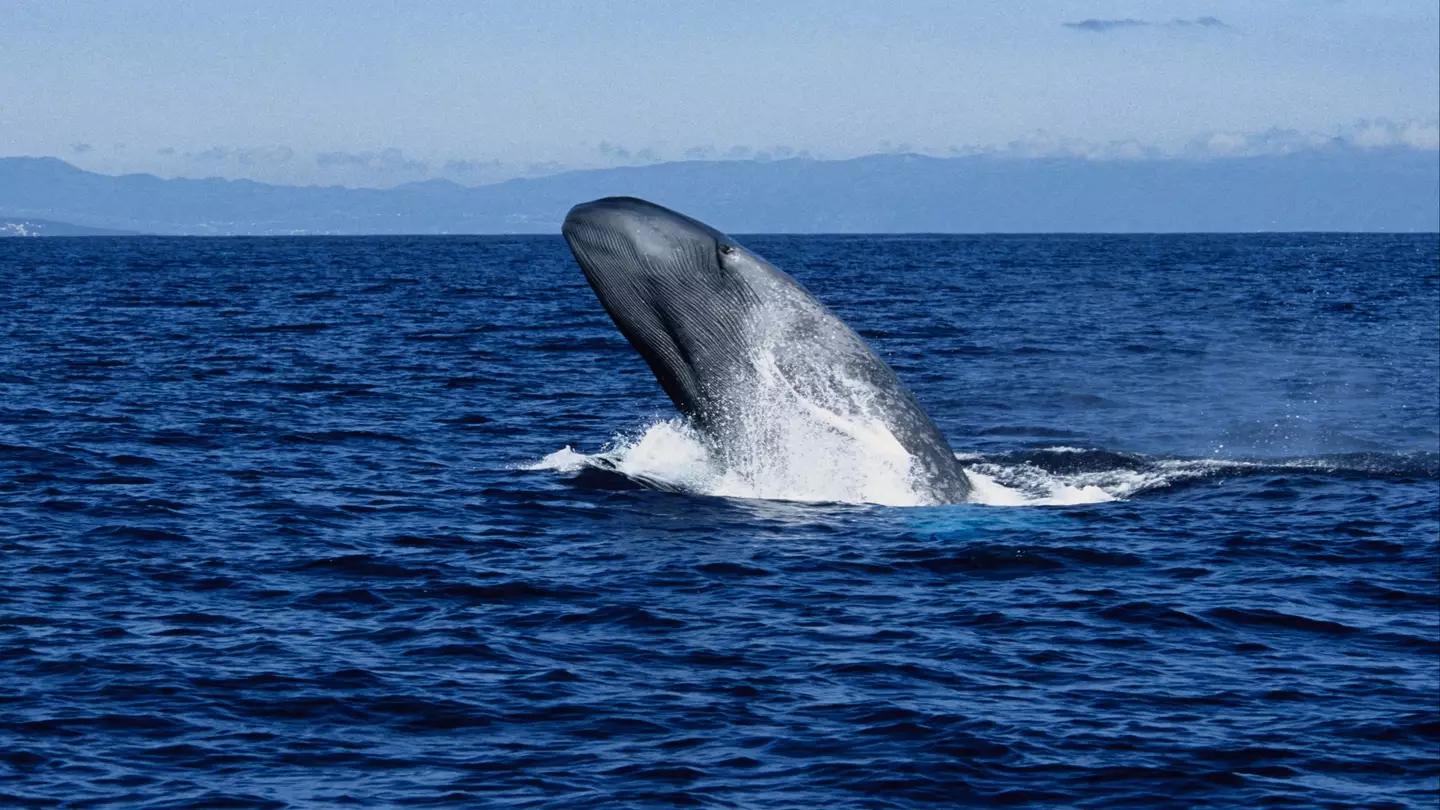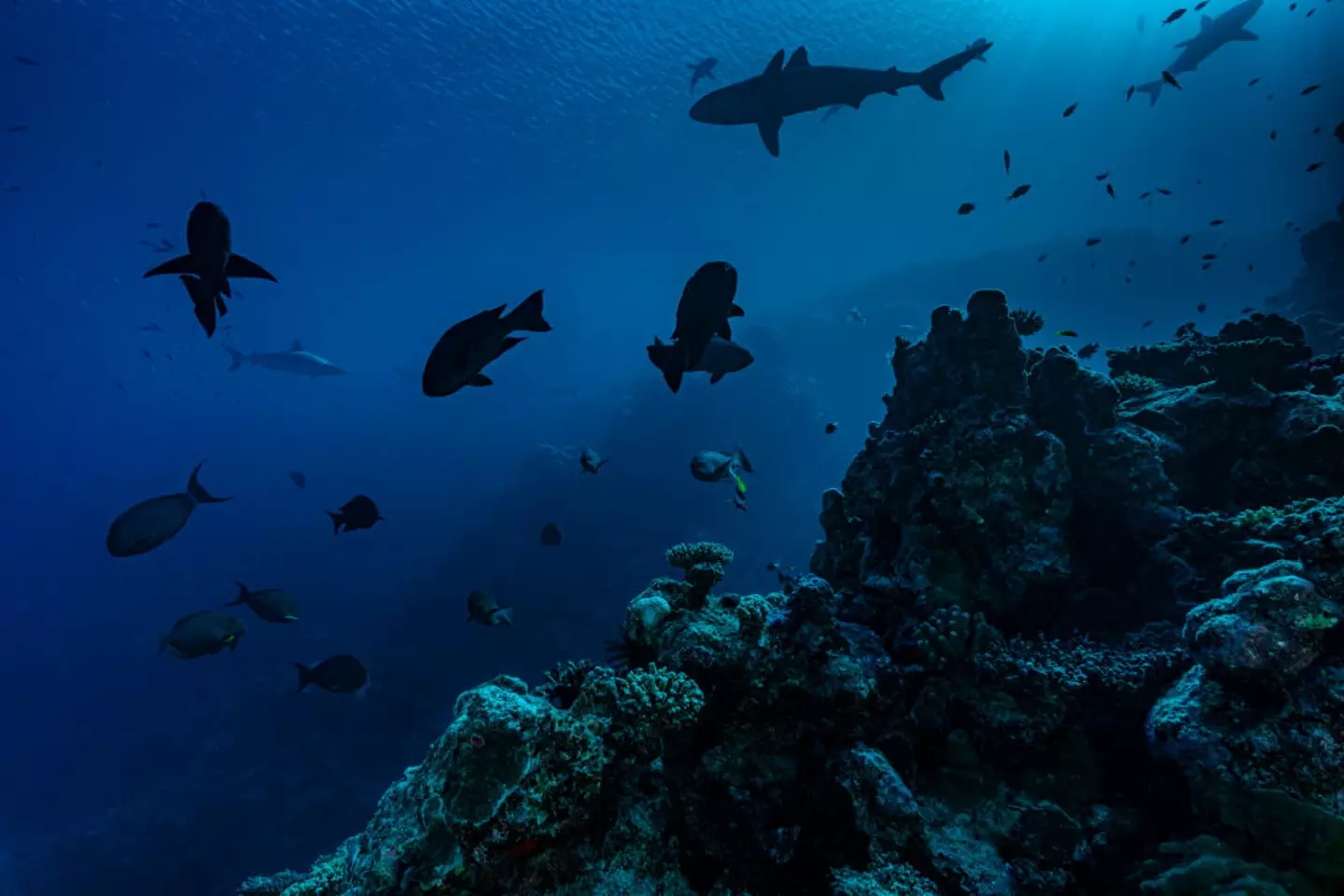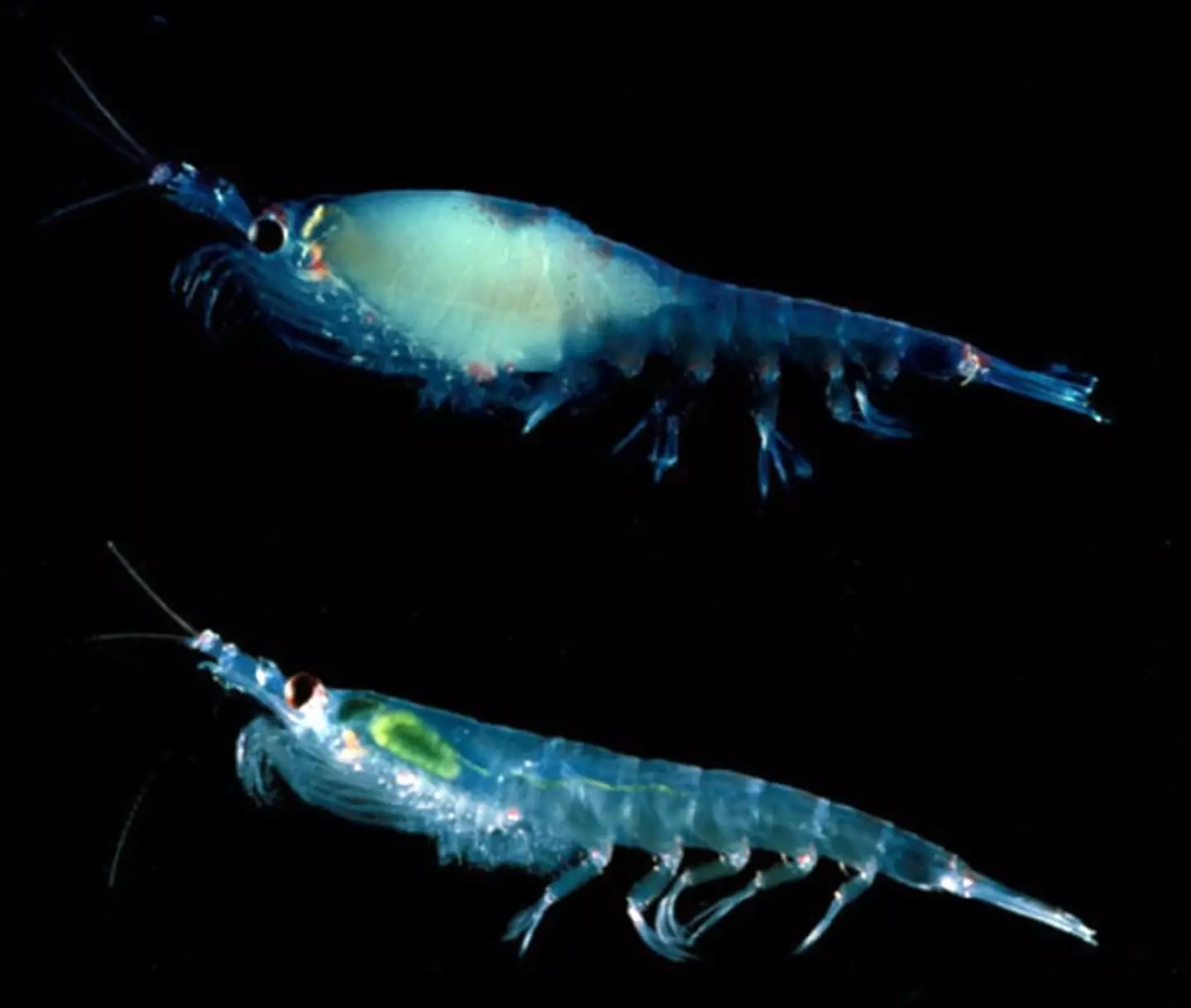
In a harrowing message to humanity about changing ecosystems for the worse, blue whales have started going silent.
You've likely heard of 'whale songs' and the species almost being the soundtrack of our seas, but worry is setting in for the scientific community as these songs aren't being heard as much.
Marine biologists have become concerned with the trend, especially given that the species is endangered.
While it's been drawn down to climate change, there have been a number of contributing factors that have resulted in the silence of the whales.
Advert
Researchers at the Monterey Bay Aquarium Research Institute conducted a study, which found that blue whale songs had dropped by nearly 40 percent since 2019.
Why Blue Whales are going silent?
John Ryan, a biological oceanographer at the Monterey Bay Aquarium Research Institute, told National Geographic of a marine heatwave known as 'The Blob', which harmed the ocean's ecosystems in 2013.

"It caused the most widespread poisoning of marine mammals ever documented. These were hard times for whales," he explained, as toxic algae started to bloom under these conditions, among other things.
The study, which was published in February, looked at six years of caoustic monitoring in the central California Current Ecosystem, while documenting whale songs which began in July 2015.
While Humpback whales have a more diverse diet, their songs remained unchanged and just as common.
Blue whales, who can sometimes protect us from sharks, rely on krill for the majority of their diet and so weren't heard as much due to the shortage.

Effects of The Blob
Back in 2013, a pool on unusually warm water stuck around in the winter months near the Bering Sea and Gulf of Alaska, with scientists baffled by its persistence.
It meant that the water made its way down the Pacific Coast, becoming known as The Blob.
Ocean temperatures increased by over 4.5°F (2.5°C) on average in certain areas, covering a region of around 2,000 miles in the Pacific by 2016.
Krill then started to become scarce, with the shrimp-like species all but vanishing as a result of The Blob.
Anchovies also followed suit, as Ryan explained the effects on Blue Whales: "When you really break it down, it’s like trying to sing while you're starving. They were spending all their time just trying to find food.
"We don’t hear them singing. They’re spending all their energy searching. There’s just not enough time left over - and that tells us those years are incredibly stressful."

What does it mean for humanity?
The decrease in whale songs has become a warning to humanity, scientists say.
“The whole system changes, and we don’t get the krill. So the animals that rely only on krill are kind of out of luck,” Oceanographer Kelly Benoit-Bird, a Monterey Bay Aquarium marine biologist and co-author of the study stated.
Dawn Barlow, an ecologist at the Marine Mammal Institute at Oregon State University, explained: “Blue whales are sentinels.
“They integrate many ocean processes. Where they are, and what they’re doing can tell you a lot about the health of the ecosystem.”
She said that these consequences have been 'highlighted' by The Blob, adding: “This isn’t just about what happens during the heatwave—it’s the lasting impacts, especially for long-lived animals like whales.”
If the species, considered to be powerful sentinels, begins to falter, it means that something major in the ecosystem is changing.
The sea could be changed, permanently.
Benoit-Bird said: “There’s a chance that one of these events becomes a tipping point, and that may not return to the state we had before.
“And that matters. For how the ocean absorbs carbon, for the fish we eat, and for the future of marine ecosystems,” she concluded.
Topics: Animals, Environment, Global Warming, US News, World News, Science